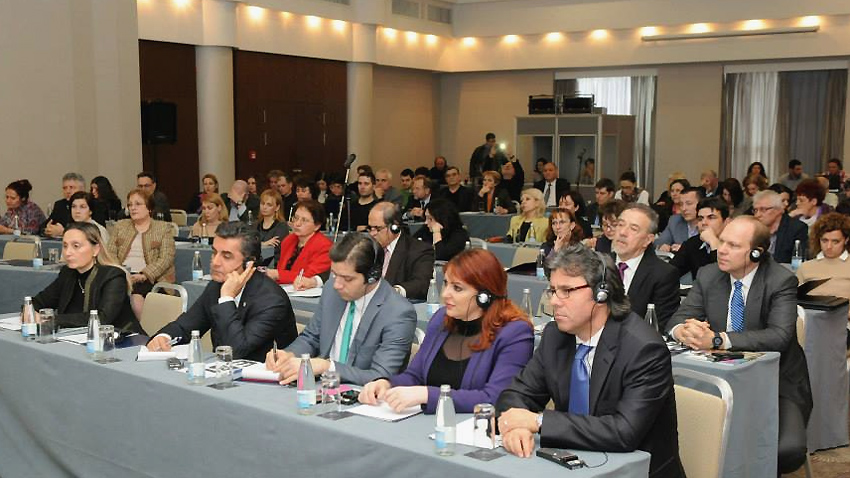It is difficult to imagine a democracy without public media and public radio - this is not a country we would want to live in. This opinion united the many speakers and guests of the International Conference titled "Public Radio in Europe – Trends, Challenges and the Way Forward” organized this week by the Bulgarian National Radio on the occasion of its 80th anniversary.
 "The future is in our hands," said the President of the Euroradio Committee with the European Broadcasting Union and Deputy Director of BBC Radio, Graham Ellis. After nearly 40 years in the British media leader, he believes that radio will continue to be part of people's lives for many years to come, but it is now faced with an important choice: to live in the past or re-invent itself. Graham Ellis talks to Radio Bulgaria in a special interview about the current developments in radio, the mission of public service media, the role of the EBU’s music exchange program, the current role of the foreign services in an ever-globalizing world, and also about his impressions from his first visit to Bulgaria and the BNR.
"The future is in our hands," said the President of the Euroradio Committee with the European Broadcasting Union and Deputy Director of BBC Radio, Graham Ellis. After nearly 40 years in the British media leader, he believes that radio will continue to be part of people's lives for many years to come, but it is now faced with an important choice: to live in the past or re-invent itself. Graham Ellis talks to Radio Bulgaria in a special interview about the current developments in radio, the mission of public service media, the role of the EBU’s music exchange program, the current role of the foreign services in an ever-globalizing world, and also about his impressions from his first visit to Bulgaria and the BNR.
"I think there are constant challenges for radio that are coming from the fact that people have got many more things to do with their time than they used to have, they have got many more opportunities to listen to music from different sources than they used to have. So there’s much more choice for the public. I think that if radio, both commercial or public, has to be successful in the future, people have to keep listening to the radio. The big challenge for us all is to make radio a really attractive way for spending your time. The role of public service media is to serve the citizen without being by any way tainted by political views or commercial interests and to make sure the public have sources of information on which they can rely. PSM stand on their bond with the citizen. It’s the citizen ultimately who pays for public service media and citizens will only pay if they feel that they get value and the value they look for is a trusted independent source of information.”
You can hear the full interview in the audio file.
Timișoara, a large multicultural city in western Romania, is the center of the historical community of the Banat Bulgarians . The members of this community are descendants of settlers from the Bulgarian lands nearly three centuries ago, who have..
In Gabrovo – a city in the geographical center of Bulgaria, once described as the Bulgarian Manchester, but today facing demographic challenges – there are young people who believe that the future can be better and that this largely..
For 15 years, Stela Nedkova has been living in Brussels . After completing her education in Bulgaria, she decided to test herself in a different reality to see whether she could handle life’s challenges on her own, without her parents’ help. Stela faced..

+359 2 9336 661
